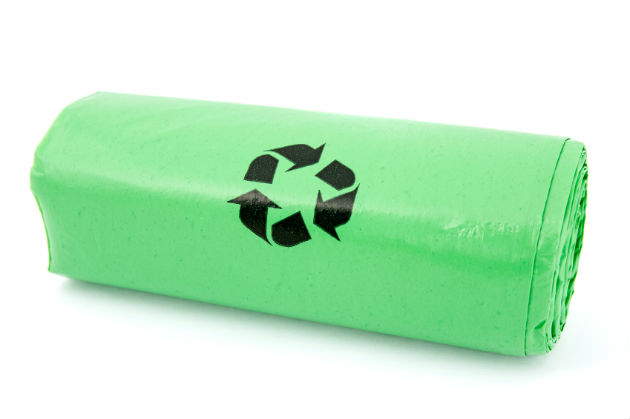If you’re trying to live a more sustainable life, there are probably some specific words or phrases that you look for when choosing the products you bring into your home, such as: recyclable, post-consumer waste, compostable, biodegradable, etc.
Although these words have a sustainable connotation, they don’t always guarantee that you’re making a planet-friendly choice.
More people are becoming aware of the immense threat that the production and disposal of plastic waste poses to the environment, and it is easy to think that biodegradable plastic (also known as bioplastic) is the perfect way to use plastic without harming the planet.
Think again.
Biodegradable doesn’t mean compostable.
Traditional petroleum-based plastic products can take more than 1,000 years to completely break down in an open setting (and never in a landfill). Biodegradable plastics degrade at a quicker pace, but this doesn’t mean they’re safe for the soil. Most plastics categorized as “biodegradable” actually decompose into toxic or polluting materials. Compostable plastics, however, break down into water, inorganic compounds, carbon dioxide and biomass at the same rate as known compostable materials such as wood, leaves or paper within three to six months of disposal.
Most biodegradable plastics are still toxic.
The first (and most popular) biodegradable bags hit the market about 10 years ago are actually made from resins containing polyethylene, starches and heavy metals such as cadmium, lead and beryllium. Since plastic bag litter is so prolific all over the world (some countries jokingly call it their national flower because it “blooms” everywhere), this means that soil and water are still at risk even when businesses switch to “biodegradable” bags.
Biodegradable plastic can’t be recycled.
Many people think that a biodegradable label improves the chances that a plastic product will eventually “disappear” without harming the planet. Although some biodegradable plastics can be recycled, no curbside recycling program will take them. This means that truly biodegradable plastic has to be taken to a commercial composting facility (find one using
FindAComposter.com) where it will spend its final days being eaten by microbes.
Biodegradable plastic doesn’t fix the consumption problem.
One of the biggest problems with biodegradable plastics is that they simply encourage people to continue their over consumption of disposable materials. Consumers feel better about choosing a product labeled (usually falsely) as biodegradable, and they never have to confront the fact that they are sending mountains of waste to the landfill, and poisoning the planet in the process.
Do you have tips for avoiding plastic products all together? Share them in the comments section!


